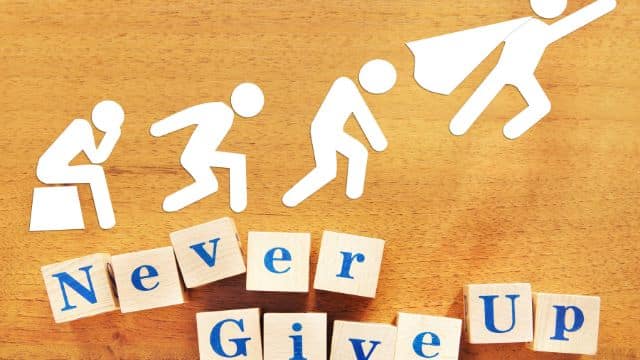In a world full of doubt and uncertainty, having unshakeable self-belief can be a game-changer. It’s the fuel that propels us forward, helping us overcome obstacles and achieve our greatest ambitions. But what exactly is the science behind building this unwavering confidence?
In this article, we delve deep into the secrets of cultivating self-belief, backed by scientific evidence and expert insights. From understanding the power of positive affirmations to harnessing the potential of visualizing success, we explore the techniques that can amplify your self-confidence.
- Discover how neuroplasticity, the brain’s remarkable ability to rewire itself, plays a pivotal role in transforming limiting beliefs into empowering ones.
- Uncover the impact of setting achievable goals and embracing failure as a stepping stone to success.
- Learn how self-compassion and self-care practices can nurture your self-belief, allowing you to bounce back stronger than ever.
- Fuel your confidence and unlock your true potential as we unveil the science behind building unshakeable self-belief.
- Get ready to embark on a journey of self-discovery and transformation, where you’ll redefine what’s possible for you.
Table of Contents
Understanding self-belief and its impact on confidence
- Self-belief is the foundation upon which confidence is built. It is the unwavering faith in one’s abilities and worthiness.
- When we believe in ourselves, we are more likely to take risks, push boundaries, and overcome obstacles.
- On the other hand, a lack of self-belief can hinder our progress and hold us back from reaching our full potential.
- Numerous studies have shown that self-belief has a profound impact on our mental and emotional well-being.
- Research conducted by psychologists has found a strong correlation between self-belief and overall life satisfaction.
- Individuals with high levels of self-belief tend to experience lower levels of anxiety and depression, and they are more resilient in the face of challenges.
The psychology of self-belief: How our thoughts shape our confidence
- Our self-belief is deeply influenced by our thoughts and beliefs.
- The psychological concept of cognitive restructuring suggests that our thoughts can be reshaped to support more positive and empowering beliefs about ourselves.
- By challenging and replacing negative thoughts with more realistic and positive ones, we can gradually build a stronger sense of self-belief.
- One effective technique for reshaping our thoughts is called cognitive reframing.
- This involves identifying and challenging negative or limiting beliefs and replacing them with more empowering ones.
- For example, if you find yourself thinking, “I’m not good enough,” you can reframe that thought to say, “I am capable and deserving of success.”
- This simple shift in thinking can have a significant impact on your self-belief and confidence.
The importance of self-awareness in building self-belief
- Self-awareness is a crucial component of building self-belief. It involves understanding and accepting who we are, including our strengths, weaknesses, and values.
- When we have a clear understanding of ourselves, we are better equipped to make decisions that align with our authentic selves, which in turn strengthens our self-belief.
- Practicing self-awareness can be done through various techniques, such as journaling, meditation, or seeking feedback from trusted individuals.
- By regularly reflecting on our thoughts, emotions, and behaviors, we can gain valuable insights into our beliefs and values.
- This self-awareness enables us to make intentional choices that support our self-belief and foster personal growth.
Overcoming self-doubt: Strategies to boost self-belief
- Self-doubt is a common obstacle on the path to building self-belief. It is that nagging voice in our heads that questions our abilities and undermines our confidence.
- However, with the right strategies, we can overcome self-doubt and cultivate a stronger belief in ourselves.
- One effective strategy is to challenge self-doubt with evidence. When self-doubt creeps in, ask yourself for concrete examples of times when you have succeeded or made progress.
- Remind yourself of your past achievements and strengths. This exercise can help shift your focus from self-doubt to self-belief.
- Another strategy is to surround yourself with positive influences. Seek out individuals who believe in you and support your goals.
- Their encouragement and validation can help boost your self-belief. Additionally, avoid comparing yourself to others, as this can fuel self-doubt.
- Remember that everyone’s journey is unique, and focusing on your own progress is what truly matters.
The role of positive affirmations and visualization in building confidence
- Positive affirmations and visualization are powerful tools for building self-belief.
- Positive affirmations involve consciously repeating positive statements about yourself and your abilities.
- These affirmations can help rewire your brain, replacing negative self-talk with empowering beliefs.
- Visualization, on the other hand, involves creating vivid mental images of yourself successfully achieving your goals.
- By visualizing success, you are training your brain to believe in your abilities and increasing your self-confidence.
- Research has shown that both positive affirmations and visualization can have a significant impact on self-belief.
- Studies have found that individuals who regularly practice positive affirmations and visualization techniques experience increased self-confidence and improved performance in various domains of life.
Building a support network: Surrounding yourself with positive influences
- Building a strong support network is vital for nurturing self-belief.
- Surrounding yourself with positive influences can provide a sense of encouragement, validation, and accountability.
- It is essential to cultivate relationships with individuals who believe in your abilities and support your goals.
- Seek out mentors, friends, or family members who inspire and motivate you. Engage in meaningful conversations with them, share your aspirations, and seek their guidance when needed.
- By surrounding yourself with positive influences, you create an environment that fosters self-belief and personal growth.
Embracing failure and learning from setbacks to strengthen self-belief
- Failure is an inevitable part of any journey towards self-belief and success.
- Instead of viewing failure as a sign of inadequacy, it is crucial to embrace it as an opportunity for growth and learning.
- By reframing failure as a stepping stone to success, you can strengthen your self-belief and resilience.
- When faced with setbacks, take the time to reflect on what went wrong and identify valuable lessons learned.
- Use these lessons to adjust your approach and move forward with renewed determination.
- By embracing failure as a natural part of the process, you can cultivate a growth mindset that fuels your self-belief.
The power of goal-setting in building unshakeable self-belief
- Setting achievable goals plays a crucial role in building unshakeable self-belief.
- Goals provide a sense of direction and purpose, allowing you to focus your efforts and track your progress.
- When you set and achieve meaningful goals, you reinforce your belief in your abilities and build momentum towards success.
- To ensure your goals support your self-belief, it is essential to make them specific, measurable, attainable, relevant, and time-bound (SMART).
- Breaking your goals down into smaller, manageable steps can also help build confidence as you make progress.
- Regularly reviewing and adjusting your goals is also important. As you grow and evolve, your goals may need to be revised to align with your changing aspirations.
- By consistently setting and pursuing goals that resonate with your authentic self, you can build unshakeable self-belief that withstands any challenges.
The role of perseverance and resilience in maintaining confidence
- Perseverance and resilience are essential qualities for maintaining confidence in the face of adversity.
- The road to building self-belief is rarely smooth, and setbacks are inevitable.
- However, by cultivating perseverance and resilience, you can bounce back stronger than ever.
- Perseverance involves staying committed to your goals and pushing through challenges, even when the going gets tough.
- Resilience, on the other hand, is the ability to recover quickly from setbacks and adapt to change.
- Both qualities are closely linked to self-belief, as they demonstrate your determination and belief in your ability to overcome obstacles.
- Cultivating perseverance and resilience can be done through various strategies, such as developing a growth mindset, seeking support from your network, and practicing self-care.
- By embracing these qualities, you can maintain your confidence and navigate any challenges that come your way.
Conclusion: Embracing the journey of self-belief and confidence
- Building unshakeable self-belief is a journey that requires commitment, self-reflection, and a willingness to embrace challenges.
- By understanding the science behind self-belief and implementing the strategies explored in this article, you can fuel your confidence and unlock your true potential.
- Remember, self-belief is not a destination but a lifelong practice. Embrace the process of self-discovery, celebrate your accomplishments, and learn from your failures.
- With each step forward, you’ll redefine what’s possible for you and embark on a journey of personal growth and transformation.
- Fuel your confidence, trust in yourself, and embrace the limitless possibilities that await you.



































